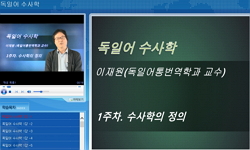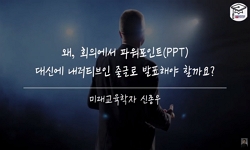우리의 형사법정에서 구두변론의 상황이 나아지지 않는 가장 큰 이유는 아무래도 아직까지 실무가들이 구두변론의 개념이나 대상, 요령에 대해 충분하게 이해하지 못하고 있기 때문이라 생...
http://chineseinput.net/에서 pinyin(병음)방식으로 중국어를 변환할 수 있습니다.
변환된 중국어를 복사하여 사용하시면 됩니다.
- 中文 을 입력하시려면 zhongwen을 입력하시고 space를누르시면됩니다.
- 北京 을 입력하시려면 beijing을 입력하시고 space를 누르시면 됩니다.

구두변론의 구성과 내러티브(Storytelling) 기법 = Construction of Oral Argument and Narrative(Storytelling) technique
한글로보기https://www.riss.kr/link?id=A101005192
- 저자
- 발행기관
- 학술지명
- 권호사항
-
발행연도
2015
-
작성언어
-
-
주제어
구두변론 ; 모두진술 ; 최종변론 ; 내러티브 ; 수사학 ; 스토리텔링 ; 작문기법 ; Oral Argumentation ; Opening Statement ; Closing Argument ; Narrative ; Rhetoric ; Storytelling ; Composition
-
KDC
364
-
등재정보
KCI등재
-
자료형태
학술저널
-
수록면
33-89(57쪽)
-
KCI 피인용횟수
3
-
비고
학회 요청에 의해 무료로 제공
- 제공처
- 소장기관
-
0
상세조회 -
0
다운로드
부가정보
국문 초록 (Abstract)
우리의 형사법정에서 구두변론의 상황이 나아지지 않는 가장 큰 이유는 아무래도 아직까지 실무가들이 구두변론의 개념이나 대상, 요령에 대해 충분하게 이해하지 못하고 있기 때문이라 생각된다. 법원이 주도하는 사법개혁의 일환으로 공판중심 주의와 국민참여재판이 시행되다 보니, 정작 법정에서 구두변론을 수행해야 하는 것은 검사나 변호인임에도 불구하고 변론의 문제도 재판을 진행하는 법관 입장에서 접근 하는 경향도 보게 된다. 구두변론과 구술심리를 혼동하는 것도 그런 연유에서 생겨난 것이다. 그런 점에서 구두변론이란 무엇이며, 형사절차에서 무엇이 구두변론의 대상 인지 정확하게 이해할 필요가 있다. 구두변론은 듣기 좋은 말이나 훌륭한 말을 긁어 모은다고 해서 할 수 있는 것이 아니다. 구두변론에 사용되는 글(이것은 서면 변론문 과도 다른 것이다)은 철저한 사건분석 후에 일정한 이론에 따라 작문해야 하는 것이다. 구두변론문을 작문하는 요령은 글의 유형에 따라 몇 가지로 구분할 수 있는데, 그 중에 대표적인 것이 Narrative이다. 구두변론과 관련해서 실무가들이 가장 많이 들을 수 있는 것이 ‘스토리텔링 기법으로 배심원에게 말하라’는 말이라 생각되는데, 이것이 ‘Narrative’ 라는 작문 유형을 전제로 한다는 사실은 매우 생소하게 여겨질 것이다. 구두변론은 하나의 글 유형이 아니라 여러 유형이 글이 모아져서 하나의 구두변론용 글을 이루는 것인데, 그 요소가 되는 글 유형들을 충분히 이해하고 사건에 맞게 적절하게 작문해야 한다는 점을 잘 이해하지 못하는 듯하다. 어떤 점에서 구두변론은 법지식의 문제가 아니라 국어작문의 문제이다. 이 글에서는 형사절차에서 구두변론의 개념과 대상, 구두 변론의 구성과 Storytelling 기법을 중심으로 우리의 형사소송법이나 실무를 염두에 두고 도움이 될 만한 내용을 영미의 법정변론 교과서들에 소개된 이론을 참고해서 소개 하였다.
다국어 초록 (Multilingual Abstract)
This article intends to introduce basic theory and method of oral argumentation in criminal court. Criminal Procedure Act(Act No. 8496, Jun. 1, 2007) proclaims that “Pleadings in the courtroom should be made orally”[ Article 275-3 (Principle of O...
This article intends to introduce basic theory and method of oral argumentation in criminal court. Criminal Procedure Act(Act No. 8496, Jun. 1, 2007) proclaims that “Pleadings in the courtroom should be made orally”[ Article 275-3
(Principle of Oral Pleading)]. However, criminal court practice in korea has not developed oral argumentation tradition and lawyers still suffer from deficiencies in oral pleadings. Oral argumentation in court does not simply mean that lawyers argue for their case with quite a good many verbal expressions. Not at all. Trial advocacy has its own method and logic. Lawyers should be well acquainted in procedure and their what-to-dos at each stage. For example, opening statement has it’s own purpose, elements and structure. To prepare and organize opening statements means to develope case-theory and theme through case research ahead. Narrative(Storytelling) skills are useful to present case and give great help in making judge and the jury understand the case in clients’s point of view. To make impressive oral argumentation, most of all, lawyers should be efficient in writings, which means they should be well trained in literatures and acquire some composition skills. In this sense, progymnasmata for composition training and rhetorical exercises give useful instruction to understand writing skills.
목차 (Table of Contents)
- Ⅰ. 서론
- Ⅱ. 구두변론의 성격과 위상에 대한 혼란
- 1. ‘구두변론’의 개념에 대한 오해
- 2. 구두변론이 강조되어야 하는 사건
- 3. 구두변론에 관한 형사소송법 규정의 불충분성
- Ⅰ. 서론
- Ⅱ. 구두변론의 성격과 위상에 대한 혼란
- 1. ‘구두변론’의 개념에 대한 오해
- 2. 구두변론이 강조되어야 하는 사건
- 3. 구두변론에 관한 형사소송법 규정의 불충분성
- Ⅲ. 구두변론의 기초이론
- 1 구두변론의 배경 – 수사학적 관점
- 2. 구두변론의 과학적 기초
- Ⅳ. 모두진술(opening statement) 및 최종변론 (closing argument)의 구성과 내러티브 기법
- 1. 모두진술의 구성
- 2. 최종변론의 구성
- 3. Storytelling 기법
- Ⅴ. 결론
참고문헌 (Reference)
1 이은모, "형사소송법" 박영사 2011
2 신동운, "신형사소송법" 법문사 2008
3 이시윤, "신민사소송법" 박영사 2010
4 윤장수, "국민참여재판에서의 검사의 역할" (22) : 2009
5 Spence, Gerry., "Win your case : how to present, persuade and prevailevery place, every time" St. Martin’s Griffin 2006
6 Mauet, Thomas. A., "Trial techniques and trials" Wolters Kluwer Law & Business 2013
7 Mauet, Thomas. A., "Trial techniques" Wolters Kluwer Law & Business 2010
8 Berger, Marilyn. J., "Trial advocacy : planning, analysis, and strategy" Wolters Kluwer Law & Business 2011
9 Berg, David., "The Trial Lawyer, What it takes to win" American Bar Association 2006
10 Findley, Jessica. D., "The Science of Attorney Advocacy - How Courtroom Behavior Affects Jury Decision Making" American Psychological Association 2012
1 이은모, "형사소송법" 박영사 2011
2 신동운, "신형사소송법" 법문사 2008
3 이시윤, "신민사소송법" 박영사 2010
4 윤장수, "국민참여재판에서의 검사의 역할" (22) : 2009
5 Spence, Gerry., "Win your case : how to present, persuade and prevailevery place, every time" St. Martin’s Griffin 2006
6 Mauet, Thomas. A., "Trial techniques and trials" Wolters Kluwer Law & Business 2013
7 Mauet, Thomas. A., "Trial techniques" Wolters Kluwer Law & Business 2010
8 Berger, Marilyn. J., "Trial advocacy : planning, analysis, and strategy" Wolters Kluwer Law & Business 2011
9 Berg, David., "The Trial Lawyer, What it takes to win" American Bar Association 2006
10 Findley, Jessica. D., "The Science of Attorney Advocacy - How Courtroom Behavior Affects Jury Decision Making" American Psychological Association 2012
11 Meyer, Philip. N., "Storytelling for Lawyers" Oxford University Press 2014
12 Kennedy, George, "Progymnasmata : greek textbooks of prose composition and rhetoric" Society of Biblical Literature 2003
13 Lubet, Steven., "Modern trial Advocacy" National Institute for Trial Advocacy 2013
14 Rose, Charles. H., "Fundamental Trial Advocacy" Thomson/West 2011
15 McPeake, Robert, "Advocacy" Oxford University Press 2012
16 Ashfield, Evan, "Advocacy" Oxford University Press 2012
17 Murray, Michael., "Advanced legal writing and oral advocacy : trials, appeals, and moot court" Foundation Press 2014
동일학술지(권/호) 다른 논문
-
‘전 국회의원 등 내란음모 사건’을 중심으로 살펴본 증거로서 음성분석에 대하여
- 대검찰청
- 김경화(Kim, Kyungwha)
- 2015
- KCI등재
-
- 대검찰청
- 김종구(Kim, Jonggoo)
- 2015
- KCI등재
-
수사기관이 참고인을 조사하는 과정에서 작성한 영상녹화물의 증거능력
- 대검찰청
- 이창섭(Lee, Changsup)
- 2015
- KCI등재
-
- 대검찰청
- 김희균
- 2015
- KCI등재
분석정보
인용정보 인용지수 설명보기
학술지 이력
| 연월일 | 이력구분 | 이력상세 | 등재구분 |
|---|---|---|---|
| 2027 | 평가예정 | 재인증평가 신청대상 (재인증) | |
| 2021-01-01 | 평가 | 등재학술지 유지 (재인증) |  |
| 2018-01-01 | 평가 | 등재학술지 유지 (등재유지) |  |
| 2015-01-01 | 평가 | 등재학술지 선정 (계속평가) |  |
| 2014-01-10 | 학술지명변경 | 외국어명 : 미등록 -> Contemporary Review of Criminal Law |  |
| 2014-01-01 | 평가 | 등재후보학술지 유지 (계속평가) |  |
| 2013-01-01 | 평가 | 등재후보 1차 PASS (등재후보1차) |  |
| 2012-01-01 | 평가 | 등재후보학술지 유지 (기타) |  |
| 2010-01-01 | 평가 | 등재후보학술지 선정 (신규평가) |  |
학술지 인용정보
| 기준연도 | WOS-KCI 통합IF(2년) | KCIF(2년) | KCIF(3년) |
|---|---|---|---|
| 2016 | 1.41 | 1.41 | 1.21 |
| KCIF(4년) | KCIF(5년) | 중심성지수(3년) | 즉시성지수 |
| 1.11 | 0.96 | 1.314 | 0.51 |




 스콜라
스콜라







